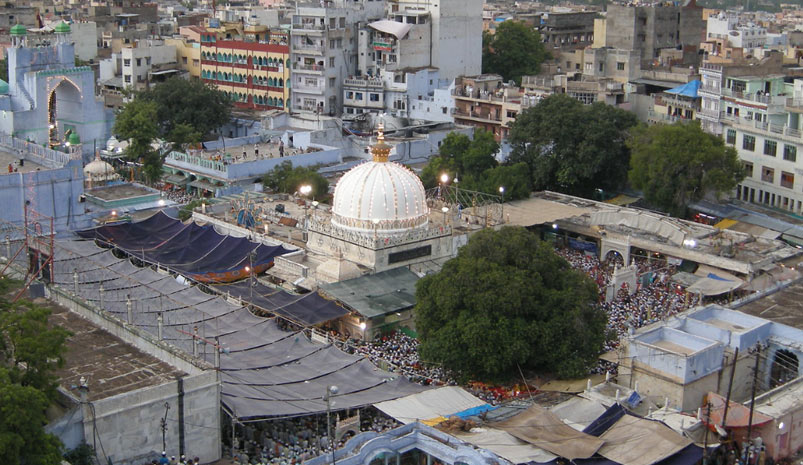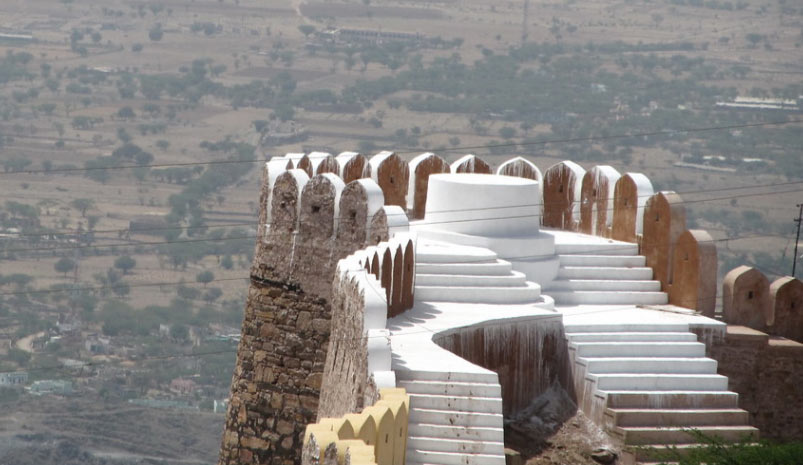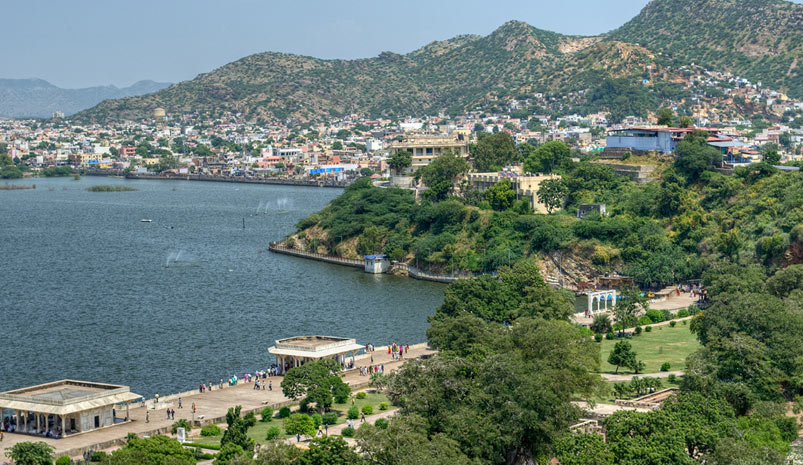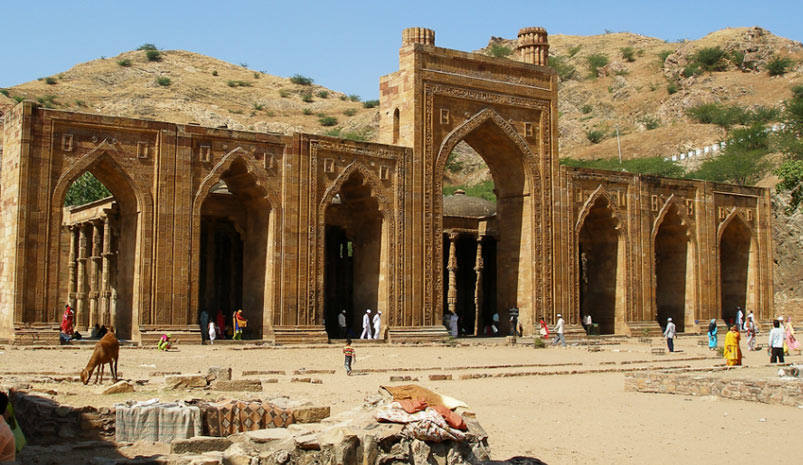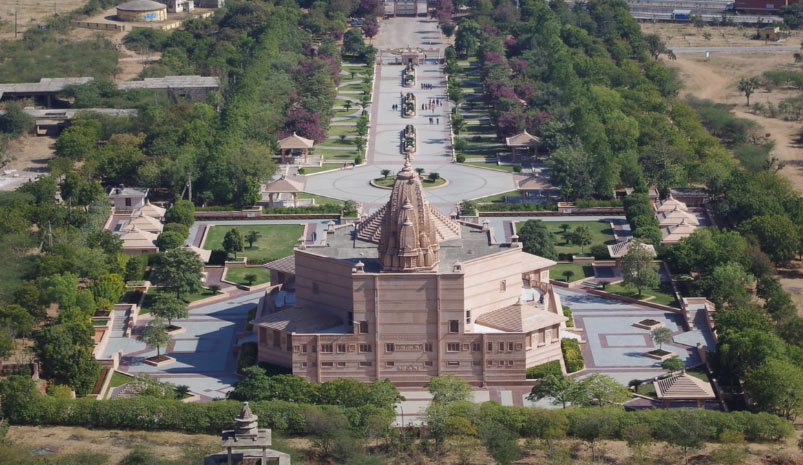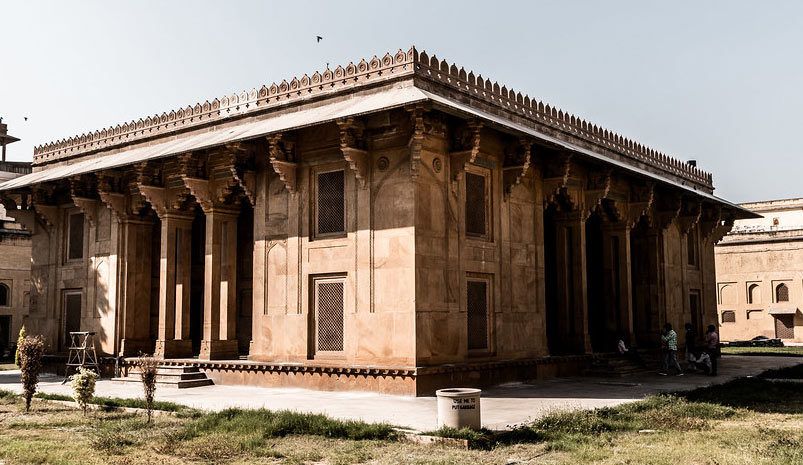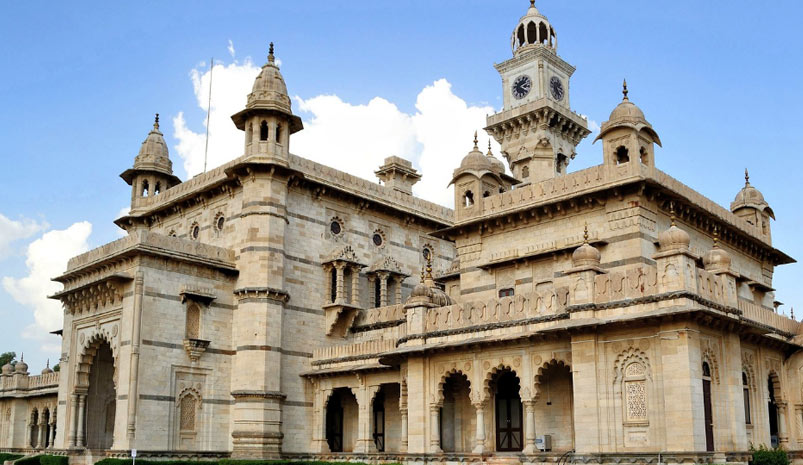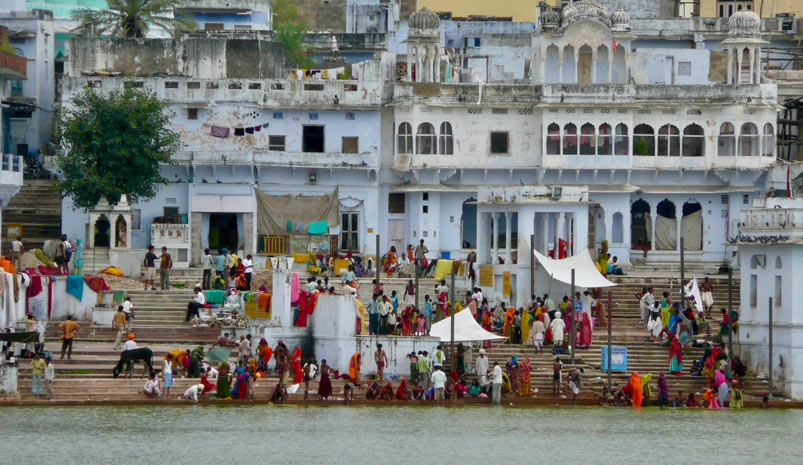Ajmer
Ajmer is a popular destination in the Indian state of Rajasthan, known for its rich history, religious significance, and architectural marvels. Here are some key attractions and destinations in Ajmer:
- Ajmer Sharif Dargah: The Ajmer Sharif Dargah is one of the most revered Sufi shrines in India. It is the tomb of the Sufi saint Khwaja Moinuddin Chishti and attracts a large number of devotees from different religions.
- Taragarh Fort: Situated atop a hill, Taragarh Fort offers panoramic views of Ajmer city. It is an ancient fortress known for its architectural beauty and historical significance.
- Ana Sagar Lake: Ana Sagar Lake is a picturesque artificial lake located in the heart of Ajmer. It is a popular spot for boating and offers a peaceful environment for leisurely walks.
- Adhai Din Ka Jhonpra: This mosque is a unique architectural blend of Indo-Islamic styles. Built in a short span of two-and-a-half days, it is known for its intricate carvings and historical importance.
- Nareli Jain Temple: Situated on the outskirts of Ajmer, Nareli Jain Temple is a magnificent marble temple dedicated to Lord Adinath. It showcases splendid craftsmanship and offers a serene spiritual experience.
- Pushkar: Just a short distance away from Ajmer, the holy town of Pushkar is a must-visit destination. It is famous for the sacred Pushkar Lake, Brahma Temple, and the vibrant Pushkar Camel Fair held annually.
- Akbari Fort and Museum: Located near the Ajmer Sharif Dargah, the Akbari Fort and Museum is a historical site that exhibits artifacts, weaponry, and artwork from the Mughal era.
- Mayo College: Founded in 1875, Mayo College is a prestigious boarding school known for its magnificent architecture. The campus is adorned with lush gardens, grand buildings, and a museum showcasing the history of the school.
These are just a few highlights of the many attractions and destinations that make Ajmer a fascinating place to explore. The city’s rich cultural heritage, spiritual significance, and architectural wonders leave visitors enchanted with its charm.
History
Ajmer, located in the state of Rajasthan, India, has a rich and fascinating history. The city has been a center of cultural, religious, and political significance for centuries. Ajmer was founded by the Chauhan dynasty in the 7th century and later became an important seat of power under the Mughal Empire. It is renowned for the Ajmer Sharif Dargah, the final resting place of the Sufi saint Khwaja Moinuddin Chishti, attracting devotees from around the world. Ajmer’s historical monuments, including the magnificent Taragarh Fort and the Adhai Din Ka Jhonpra mosque, bear testimony to its glorious past and continue to captivate visitors with their architectural beauty.
Geography
Ajmer is situated in the western part of Rajasthan, India. It is located in the Aravalli Range, an ancient mountain range. The city is positioned at an average elevation of approximately 480 meters (1,575 feet) above sea level. It is surrounded by scenic hills and is bordered by the Ana Sagar Lake. The region has a semi-arid climate with hot summers and mild winters. Ajmer’s geography offers a picturesque setting with its hilly terrain, natural landscapes, and the nearby Pushkar Valley known for its sacred lake and desert experiences.
Weather
Ajmer experiences a hot desert climate with significant variations in temperature throughout the year. Summers, from April to June, are scorching hot with temperatures ranging from 38 to 45 degrees Celsius (100-113 degrees Fahrenheit). Monsoon season starts in July and lasts till September, bringing some relief with occasional rainfall. Winters, from November to February, are relatively mild with temperatures ranging from 8 to 22 degrees Celsius (46-72 degrees Fahrenheit). The region receives an average annual rainfall of about 45 centimeters (18 inches). Ajmer is known for its hot and dry weather, with abundant sunshine and low humidity throughout the year.
How to reach
There are several ways to reach Ajmer:
By Air: The nearest airport to Ajmer is Jaipur International Airport, which is approximately 135 kilometers (84 miles) away. From the airport, you can hire a taxi or take a pre-booked transfer to reach Ajmer.
By Train: Ajmer Junction is a major railway station in Rajasthan and is well-connected to various cities across India. It has regular trains from cities like Delhi, Jaipur, Mumbai, Ahmedabad, and Jodhpur. The Ajmer Shatabdi Express and Ajmer Rajdhani Express are popular train services to Ajmer.
By Road: Ajmer has good road connectivity with neighboring cities and towns. National Highway 48 (NH 48) passes through Ajmer, connecting it to major cities like Jaipur, Delhi, and Mumbai. State-run buses and private buses operate regular services to and from Ajmer. You can also opt for self-driving or hire a taxi for a more comfortable journey.
By Bus: Rajasthan State Road Transport Corporation (RSRTC) operates bus services from various cities in Rajasthan and neighboring states to Ajmer. Deluxe, semi-deluxe, and express buses are available. Private bus operators also offer services to and from Ajmer.
It is advisable to check the schedules and availability of flights, trains, and buses in advance and plan your journey accordingly. Ajmer is a popular tourist destination, so it is recommended to book your travel tickets in advance, especially during peak travel seasons.
Getting Around
Getting around Ajmer is relatively easy with various transportation options available:
Auto-rickshaws: Auto-rickshaws are a popular mode of transport for short distances within the city. They are easily available and offer a convenient and affordable way to travel around Ajmer. Make sure to negotiate the fare before starting the ride or insist on using the meter.
Taxis: Taxis, both shared and private, are readily available in Ajmer. They provide a comfortable and convenient option for exploring the city and its nearby attractions. Shared taxis operate on fixed routes and can be a cost-effective choice.
Cycle-rickshaws: For shorter distances, you can opt for cycle-rickshaws, which are pedal-powered vehicles. They are ideal for navigating through narrow lanes and crowded areas of the city.
Buses: Ajmer has a well-established bus network operated by the Rajasthan State Road Transport Corporation (RSRTC). These buses connect various parts of the city and are an economical mode of transport. Look for bus routes and schedules at designated bus stops.
Walking: Ajmer’s old city, with its narrow streets and bustling markets, is best explored on foot. Walking allows you to soak in the vibrant atmosphere, discover hidden gems, and experience the local culture up close.
When using any mode of transportation, it is advisable to negotiate fares, clarify destinations, and agree on prices beforehand. Always prioritize your safety and follow local rules and regulations while getting around Ajmer.
